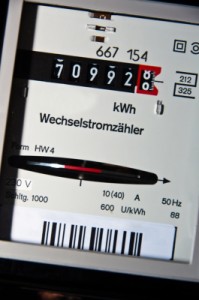People have various motivations for wanting to conserve energy. Some people want to do their
 Photo courtesy of franky242 / FreeDigitalPhotos.net
Photo courtesy of franky242 / FreeDigitalPhotos.net
part in keeping the planet healthy. Others want to have more comfortable living spaces. Some people are following the trend. And still others just want to bring down their energy bill as low as possible.
No matter your motivation, energy conservation is an awesome idea! It's one of the few win-win-win scenarios that I've ever encountered!
America's Best Energy Team does us all a favor by organizing a breakdown of where energy is lost in the home. If you look at the list on this page, you will notice that every aspect of your home is a potential "energy drain." From the shingles on your roof to the pipes coming into your basement, there are gaps and weaknesses that seed from improper installations or from weathering and the simple passage of time. The good news is you can do something about it! But where to start? I can help guide you by introducing you to The BIG 3. The BIG 3 locations where homes lose the most energy include: 1. Floors, Walls and Ceilings (Yes, I know that's what a house is.) account for 31% of home energy loss. 2. HVAC Ducts account for 15% of home energy loss. 3. Fireplaces account for 14% of home energy loss.These numbers are not steadfast, they are averages provided to ABET by the Department of Energy. The easiest way to get the real numbers for your residence is by scheduling a Home Energy Audit. Companies like America's Best Energy Team conduct Home Energy Audits. A home energy audit is a thorough investigation of a home's energy efficiency through a series of tests including a Blower Door Test, Thermographic Scan, and a Combustion Analysis of appliances. These tests will identify where your home is losing energy, where drafts enter, and how safely and effectively air and gases are ventilated throughout the house. The only requirement for scheduling a Home Energy Audit is that the property be a mobile home, single home, multi-family dwelling, or townhouse. If you are a renter, written permission from your landlord must be provided before audits are conducted. If written permission is difficult to obtain or you do not live in one of the previously mentioned residences, a QHEC or Quick Home Energy Check, can be conducted for free in some areas and is appropriate for any type of home.
By Nick Ring.
To read more about The BIG 3, check out these detailed blog posts. Floors, Walls and Ceilings HVAC Ducts FireplacesTags
Subscribe to NV Roofing's Blog



